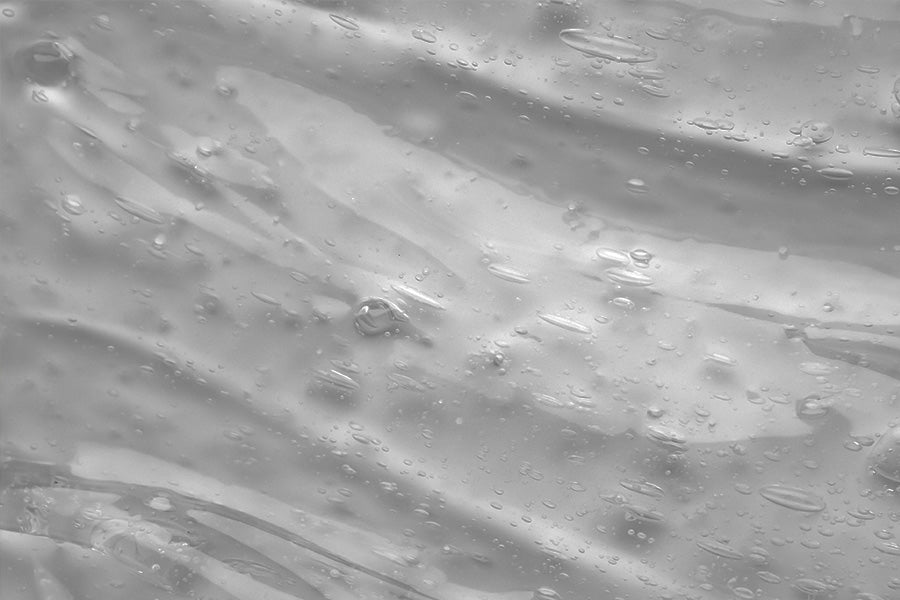The Truth About Silicones in Skincare

You’ve probably heard of silicones before, and most definitely in a negative way. Are silicones a skincare villain or a valuable ally? Silicones, or siloxanes, are synthetic compounds widely used in skincare. In this article, we will explore common silicones, their benefits, and dispels myths surrounding their use.
What Are Silicones?
Silicones aka siloxanes are synthetic compounds commonly used in skincare for their ability to create a smooth, silky texture and lock in moisture. However, they often spark debate due to concerns that they may clog pores or create a barrier on the skin. While silicones can offer immediate cosmetic benefits, their long-term effects on skin health remain a topic of discussion. Understanding their role in skincare can help you decide if they’re right for your routine.
Common Silicones in Skincare
Cyclopentasiloxane: A lightweight, fast-evaporating silicone used for a silky feel.
Dimethicone: A popular silicone that creates a smooth, protective barrier on the skin.
Methyl Trimethicone: A silicone that enhances spreadability and provides a lightweight feel.
PEG 10 Dimethicone: A silicone with PEG (polyethylene glycol). PEG-10 is used for emulsification and smoothing.
PEG 12 Dimethicone: A silicone-based compound used for its smooth application and conditioning properties.
PEG-18 Dimethicone: A silicone-based PEG compound for conditioning and improving product texture.
Stearyl Dimethicone: A silicone used for its conditioning and smoothing effects on the skin.
Trimethicone: A silicone used to provide a smooth, non-greasy feel and to condition the skin.
Benefits of Silicones in Skincare
Silicones are popular in skincare due to their many benefits. They create a smooth, velvety texture on the skin, making products easy to apply. They form a breathable barrier that locks in moisture without clogging pores, making them non-comedogenic. Additionally, silicones enhance product stability, provide long-lasting effects, and can also improve the appearance of fine lines and wrinkles.
Debunking Myths About Silicones
Due to their ability to form a protective barrier on the skin, silicones are often said to suffocate the skin or clog pores. However, silicones like Dimethicone are non-comedogenic, meaning they don't clog pores and are unlikely to cause breakouts.
Studies (see sources at the end) suggest that silicones are generally safe and non-irritating for most skin types. According to dermatologists, silicones create a breathable barrier that can lock in moisture without trapping oil or bacteria beneath the surface. In fact, their large molecular structure prevents them from deeply penetrating the skin, making them unlikely to cause irritation or acne.
Silicones offer notable benefits in skincare, including a smooth texture and effective moisture retention. While concerns about pore-clogging and skin suffocation exist, research and expert opinions generally support their safety and non-irritating nature. Understanding their role and effects can help you make an informed decision about incorporating silicones into your skincare routine.
Sources:
Silicone in Dermatology: An Update - Pooja Bains and Simplepreet Kaur
Final report on the safety assessment of silicones
A comparison between silicone‐free and silicone‐based emulsions
Safety Assessment of Dimethiconol and Its Esters and Reaction Products as Used in Cosmetics
Dimethicone as a protective ingredient in topical medications
FAQ: Silicones in Skincare
Do silicones cause cancer?
No, silicones are not known to cause cancer. Extensive research and regulatory assessments have determined that silicones used in skincare products are safe and do not pose a cancer risk. They are generally regarded as non-toxic and non-irritating for most skin types.
Do silicones cause acne?
Silicones themselves are non-comedogenic, meaning they do not clog pores or directly cause acne. However, if you have sensitive skin or are prone to breakouts, it’s always a good idea to monitor how your skin reacts to products containing silicones and choose formulations suited to your skin type.
Are silicones suitable for all skin types?
Silicones are generally safe and effective for most skin types, including oily and sensitive skin. They provide a smooth texture and help lock in moisture without clogging pores. However, if you have very sensitive skin or specific concerns, it’s wise to patch-test products or consult with a dermatologist before use.





